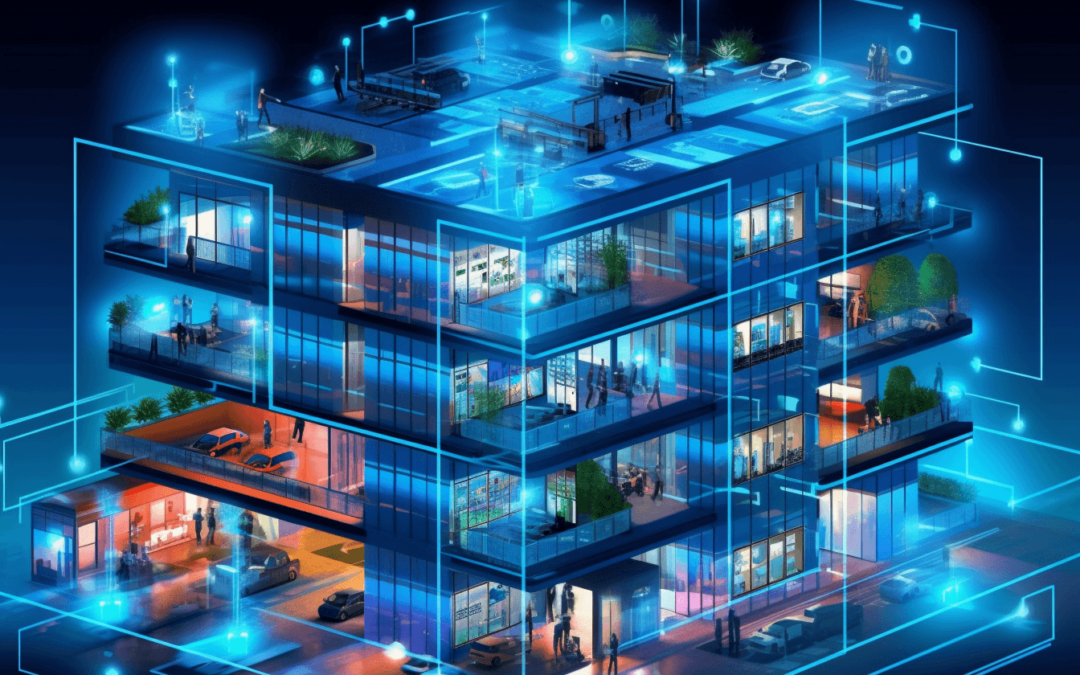As the world becomes increasingly interconnected, the management of smart buildings is evolving rapidly. This transformation is driven by technological advancements and changing expectations of occupants, resulting in an ever-shifting landscape of trends and innovations. Here are some key developments that are shaping the future of smart building management.
- Internet of Things (IoT) and Edge Computing: IoT devices are becoming more prevalent in smart buildings, with sensors and connected systems providing valuable data for monitoring and control. Edge computing brings data processing closer to the source, reducing latency and bandwidth requirements, making real-time analysis and decision-making possible.
- Artificial Intelligence (AI) and Machine Learning: AI and machine learning algorithms are increasingly being used to analyse data, predict patterns, and optimise building performance. This enables more efficient energy usage, improved maintenance scheduling, and enhanced occupant comfort.
- Digital Twins: A digital twin is a virtual replica of a physical asset, such as a building or room. This technology allows facility managers to monitor, analyse, and optimise building performance in real-time, enabling more informed decision-making and proactive maintenance.
- Integrated Building Management Systems (IBMS): The convergence of building automation systems, IT infrastructure, and communication networks is leading to more unified and streamlined management platforms. IBMS enable centralised control and monitoring of various building systems, enhancing efficiency and reducing operational costs.
- Sustainability and Energy Efficiency: The growing emphasis on green initiatives is driving the adoption of energy-efficient technologies in smart buildings. Solutions like automated lighting and HVAC systems, renewable energy sources, and advanced insulation materials help reduce energy consumption and minimise environmental impact.
- Occupant Experience and Well-being: Smart building technologies are increasingly focused on enhancing the experience of occupants. From personalised climate control and lighting to air quality monitoring and noise reduction, these innovations aim to create more comfortable and productive environments.
As these trends continue to shape the future of smart building management, it’s crucial for organisations to stay informed and adapt to the evolving landscape. By embracing innovation and adopting advanced technologies, businesses can optimise their spaces, improve efficiency, and create better experiences for occupants.


